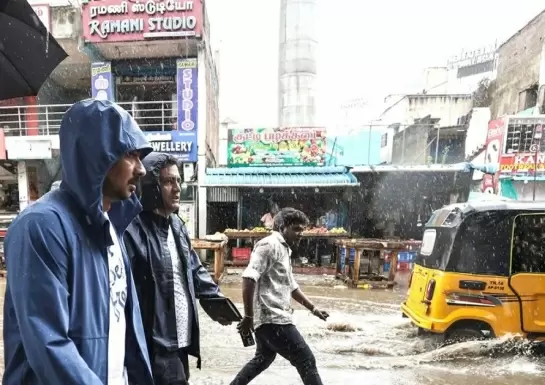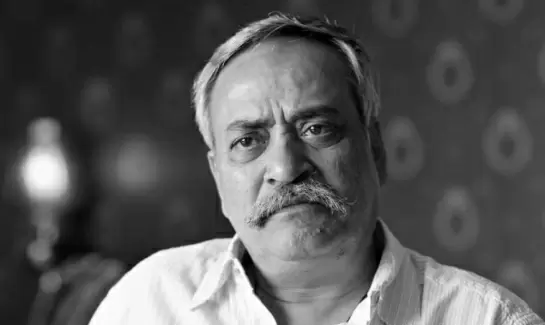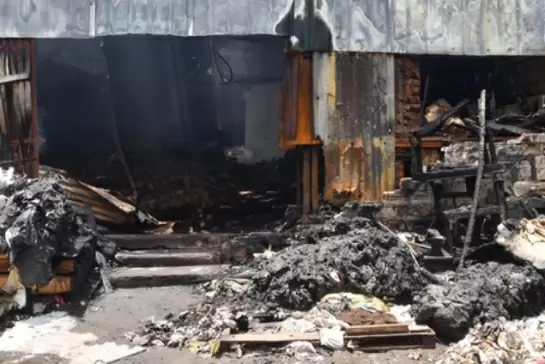Gay, trans soldiers in South Korea face harassment
11-July-2019
In a country where military service is obligatory for all men and consensual sex between men in the military is a crime, gay and trans soldiers in South Korea fall victim to harassment, violence and sexual assault, according to a new Amnesty International report.
Military service lasts between 21-24 months and an estimated 400,000 South Koreans aged between 18-35 are enlisted each year.
One of the questions new recruits are asked when enlisting is: "Are you attracted to men?"
According to the report, the majority of gay recruits respond "no" to that question in a bid to hide their sexual orientation and stave off any harassment, reported Efe news.
Many soldiers have hidden their sexuality from their family and peers for years, according to Roseanne Rife, AI's Director of research for East Asia, who spoke in Seoul on Thursday during the presentation of the "Serving in silence" study, which entailed interviewing soldiers and activists.
"The pervasive discrimination and hostile environment for LGTB individuals make many incredibly reluctant to share their stories and even to publicly acknowledge their sexual orientation or gender identity," said Rife.
The majority of respondents asked for anonymity.
Among those who chose to share their experiences were some who replied "yes" to the question and faced consequences from the get-go as "soldiers of interest".
But even if they don't say it openly, they risk attacks carried out by or with the permission of superiors for "walking in an ‘effeminate' manner, having fairer skin or speaking in a higher-pitched voice," according to the report.
Although there are regulations to prevent discrimination against LGBT members of the armed forces, accounts from 20 ex-soldiers showed harassment is common.
Harassment spans from being mocked to physical or sexual violence, lead some gay or trans South Koreans to emigrate and request refugee status in order to avoid military service.
Article 92-6 of the military criminal code, established in 1962, sets out up to two years in prison for sex between two male soldiers, even if it was consensual.
But this does not prevent assaults or rape from happening, as detailed by a former solider identified in the report as "U", who served over a decade ago.
"On some occasions, officers ordered lower-ranking soldiers to nearby motels during night shifts and then raped them," he said.
U recalled he had tried to help another soldier who he saw being sexually abused and made to drink from a toilet bowl.
U himself was then threatened and beaten by the higher-ranking soldier, saying he was "subjected to physical violence and humiliation for three hours, which included being forced to have oral and anal sex with the original victim while the senior soldier made taunting remarks."
"The main concern is that there seem to be a fair number or reports but then there are very few actual cases that were held accountable," said Rife.
The AI report was evaluated positively by the Military Human Rights Center of Korea (CMHRK).
"Our hope is that it (Article 96-2) is declared unconstitutional," Cho Jky-suk, the center's coordinator, told Efe, in response to a requirement presented in 2017 that the South Korean legal system should soon deliberate.
Cho, Rife and other activists argue the need for multiple measures to put an end to abuse and inequality that LGBT people suffer in South Korea, though they agree that the most urgent measure in the military ambit is revoking Article 96-2. IANS
Mahagathbandhan Likely to Announce Tejashwi Yadav as CM Face Ahead of Bihar Polls
IndiGo Flight from Kolkata to Srinagar Makes Emergency Landing in Varanasi
Saudi Arabia Ends Kafala Sponsorship System, Benefiting 13 Million Foreign Workers
Satya Nadella’s Pay Soars to $96.5 Million in FY25 as Microsoft’s AI Boom Lifts Profits
Dalit Youth Abducted, Assaulted, and Forced to Drink Urine in Madhya Pradesh’s Bhind









